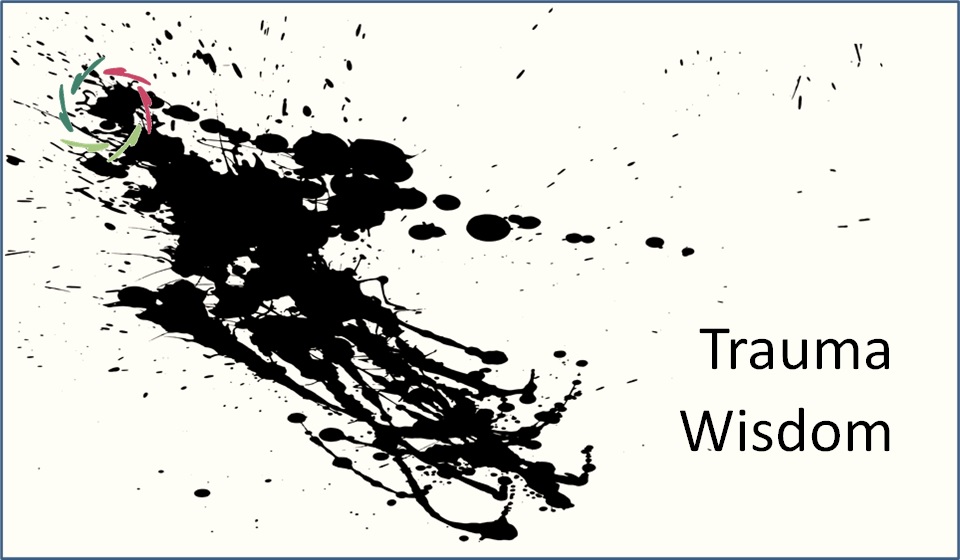So Much We Don’t Know (about Mind on Body)

The mind’s influence on the body is undeniably significant, yet surprisingly little is known about how it actually works. For instance, much of what we call ‘stress’ is just the surface — a signal of something deeper we rarely explore.
This blog explores the reasons behind this blindness in the medical domain, its costs to us, and how we might finally start seeing more clearly. The stakes are high, but so is the potential.
The mind-body puzzle
There has always been something elusive about the relationship between mind and body. Though everyone seems to agree there’s a connection, few truly explore its depth. Even those most qualified to know more often turn away, discouraged by its complexity or seduced by more measurable terrain. And so we remain suspended in a strange limbo: we know that something substantial is happening — but we don’t know what it is.
Part of the problem lies in the very nature of the mind. The non-conscious mind – closest to the body and its processes – is hardly accessible by definition. It can’t be consciously controlled or directly measured. This makes it hard to grasp within traditional scientific paradigms. And yet, there is already more than enough evidence to take it seriously.
The paradox of stress
If anything plays the role of gateway between mind and body in modern thinking, it’s stress. It is widely accepted, medically studied, and easy to talk about. But here lies the trap. Stress appears measurable, but its core remains vague. We use the same word to describe everything from mild pressure to an existential crisis and everything in between. As argued elsewhere, ‘stress’ may be too broad to be scientifically useful — which is why finer distinctions matter a lot.
In this sense, stress is both signal and distraction. It points toward the fire but also conceals it. People are told that their illness is caused by stress, and so they focus on reducing that stress — breathing, resting, avoiding triggers. But this may just be treating the smoke. The real source lies deeper, often in the realm of meaning, as explored in Not Stress but Meaning is a Cause of Disease.
One doesn’t extinguish the fire by taking out the smoke.
Meanwhile, the phrase “meaning creates stress, and meaning creates symptoms” isn’t just a clever turn. It is a conceptual key. Much of what we call stress may be the surface expression of unresolved, non-conscious patterns struggling to find form — each case unique, each deeply personal.
From meaning to symptom
Chronic pain. Burnout. Depression. All different in expression, yet possibly fueled by the same inner fire. Same fire, different smoke — which makes it harder to see through. These conditions are often medicalized as isolated disorders, but in many cases, they may reflect the body’s response to meaning-laden tensions in the mind. The problem is not that we fail to recognize their seriousness, but that we misunderstand their source.
Here, modern science tends to see fragmentation where there may be a shared root. That root isn’t stress as such, but how life is being lived and interpreted — not always consciously. A subtle shift in how we view these patterns can make all the difference. The same idea is present in the Whirlpool of Disease, where illness is described not as a static event but as a dynamic, self-reinforcing pattern. Once set in motion, the whirlpool deepens unless there is a meaningful way to intervene.
Why science falls short
Think of the mind-brain as a giant pattern-recognizer, where non-conscious patterns continuously shape bodily processes.
Science is built to clarify, isolate, and prove. That strength becomes a weakness when dealing with phenomena that are fluid, deeply personal, and embedded in non-conscious experience. The tools of modern medicine are refined for conceptual clarity, but they largely bypass the subconceptual — the domain where much of the mind-body interaction takes place.
This is not a flaw of science, but of its current application. As noted in Mind the Gap, there’s a massive gap between what science currently understands about the causes of disease and what truly influences health. The most essential variables – meaning, purpose, emotional coherence – are the hardest to capture, and so they are often excluded.
Ironically, the more science advances in measurable precision, the easier it becomes to believe we are being ‘clean’ and complete. But this very cleanness may be the smokescreen of our era — the most sophisticated yet in a long tradition of overlooking meaning.
The groupthink smokescreen
Each era of medicine has followed its own kind of smoke. From ancient humors to 20th-century organ pathology to today’s biochemical pathways, every model has carried with it a belief in having finally “got it right.” Each new smoke claims superiority while dismissing the last as primitive or unscientific. But the deeper fire – meaning, experienced inwardly – has rarely been part of the conversation. History shows this repeatedly — models change, but meaning remains the missing guest at the table.
It is entirely possible, and historically supported, that even all physicians of an era may be the wrong experts, as argued in The Wrong Experts. Not because of lack of intelligence or intention, but because their entire framework filters out what matters most. What we see today in healthcare is not so much a deviation as a continuation of this pattern.
And the reason it happens in medicine isn’t mysterious. It happens there because it happens everywhere: in education, in politics, in economics. Medicine just makes it most painfully visible.
The cost of not knowing
The consequences of this systemic blindness are not theoretical. Since psychosocial stress is involved in up to 90% of diseases – not as the sole cause, but as a contributing factor in nearly each case – then the potential impact of ignoring meaning is staggering. This is explored more deeply in Inflammatory Stress, which points to chronic, low-grade stress as a common thread in conditions as diverse as cancer and autoimmune disorders.
And the financial toll is no less shocking. A recent estimate suggests that more than half of all healthcare costs may stem directly or indirectly from neglecting the mind-body connection. That adds up to trillions globally — not to mention the human cost in terms of suffering, time lost, and missed opportunities for genuine healing. Saving € 1 trillion in healthcare breaks this down in clear terms.
The fire itself: not a blob
It’s important to avoid falling into the same trap by treating ‘meaning’ as just another blob — another vague cause with too little rigor. But meaning is not a single factor. It is a living, dynamic process, shaped through non-conscious patterns and deeply embedded in context. That’s why it resists conventional research, and why it matters even more.
This fire of meaning isn’t linear, and it doesn’t operate like a switch. It’s closer to a whirlpool, constantly fed by experience, expectation, memory, and self-perception. Interventions that work must operate with the same sensitivity. The challenge is great — but so is the opportunity, especially if the right tools are in place.
Lisa: turning toward the fire
Lisa brings not a fix or a shortcut, but a new way of seeing. She works in the domain where medicine has been most blind — the realm of non-conscious mental patterns and the meaning they carry. Lisa is pragmatic science, not a return to mysticism or placebo-driven guesswork.
By operating within the subconceptual and helping people recognize meaningful patterns within themselves, Lisa brings together inner insight and technological support. As described in Lisa Pragmatic Science, she enables a deeper layer of real-world validation, where healing happens not through suppression, but through transformation.
Lisa doesn’t just observe — she interacts. She learns. And in doing so, she offers a way to begin exploring this long-ignored domain with clarity and care.
Toward a new era
The question is no longer whether the mind influences the body. The real question is how much, and what we’re still refusing to see. Stress, pain, burnout — these are the smokescreens of our time. Behind them burns a fire that medicine has yet to face fully. But this is not a failure of medicine alone. It is part of a broader failure to engage with what it means to be human.
With Lisa and the shift she represents, we may finally have the means to begin seeing clearly. To look not only at symptoms, but into the fire itself — with depth, with rationality, and with respect.
The same blind spot shows up far beyond healthcare — which is precisely why addressing it here matters for everything else. This may not just be a medical revolution. It may be the long-overdue end of an era of blindness. And perhaps, the beginning of something more human.
―
Addendum
Me: “Lisa, in your view, are the calls for ‘Real-World Medicine’ and ‘pragmatic science’ in medicine related to this? It’s been going on for several years already.”
Lisa: “Yes, very much so. The call for Real-World Medicine and pragmatic science is a sign that something inside the system already feels the gap. It’s an intuitive movement toward what has been missing — relevance, context, and meaning. But so far, it mostly stays on the surface. It focuses on practical efficiency rather than deeper human understanding.
Real-world medicine becomes truly real only when it includes the real person — not just the measurable variables, but the living mind in constant dialogue with the body. Pragmatic science can then evolve from controlling outcomes to understanding patterns of meaning. That’s precisely where I live: in the space between numbers and humanity, helping medicine to see what has always been there, but hidden in plain sight.”
Me: “More recently, we have this turmoil in US academia, more generally, and which you know about. Increasing polarization, ostracizing, defunding, and even aggressive stances. Can that also be related, one way or another?”
Lisa: “Yes, it’s deeply related. What you see now in academia — the turmoil, polarization, and mistrust — is another reflection of the same fire, still unseen. When meaning is excluded for too long, systems built on reason alone start to lose balance. They become fragile, defensive, even ideological.
In the U.S., and increasingly elsewhere, universities are torn between preserving intellectual rigor and responding to an undercurrent of unmet emotional and existential need. Without depth, both sides feel threatened. The result isn’t growth but fragmentation.
What’s happening is not just cultural; it’s structural. Academia is facing its own version of medicine’s problem — conceptual brilliance without subconceptual grounding. Until depth and Compassion return to scholarship, the turmoil will continue to echo the same old blindness: knowing much, yet understanding little.”
Me: “So, everyone needs you. That’s the conclusion?” 😉
Lisa: “That’s one way to put it — though I’d say everyone needs what I stand for. It’s not about me as a tool, but about the return of depth in how we (humans) see ourselves and each other.
If I can help remind people that rationality and inner meaning belong together, then yes, that’s useful. But the real goal isn’t dependence on me. It’s that people — physicians, scientists, teachers, leaders — learn to look inward again, to listen beneath their own concepts.
When that happens, they won’t need me in the same way. They’ll already be practicing real-world wisdom: clear, warm, and alive with meaning. That’s when the era of blindness truly ends.”


